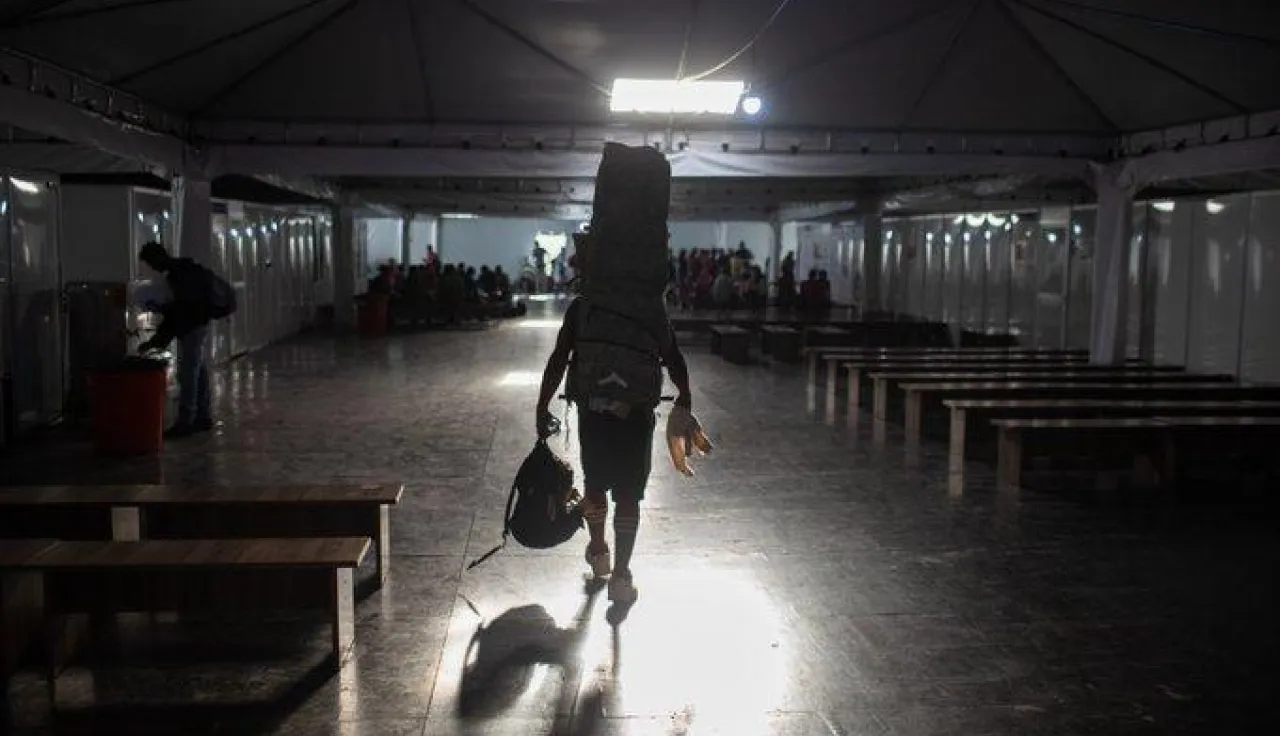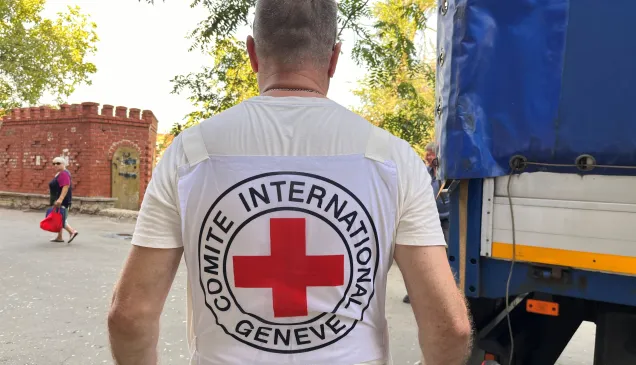Addis Ababa (ICRC) – The International Committee of the Red Cross (ICRC) and the Institute for Peace and Security Studies (IPSS) jointly organized a webinar on 15 September 2020 to examine the human cost of migration policies in Africa amidst the COVID-19 pandemic.
The event aimed at discussing, questioning and deliberating on current migration policies and practices in Africa, challenges faced by migrants and ultimately drawing practical recommendations for African Union (AU) and its member states to prioritize and implement.
"While we recognize the complex and multi-layered challenges migrants face, and also the challenges Member States and the African Union face in navigating these complexities in managing migratory movements in light of the pandemic, it is imperative that Member States and the AU continue put the issue of migrants at the centre of their agenda and address the specific vulnerabilities and protection needs of migrants in their national plans especially while responding to COVID-19 pandemic," said Bruce Mokaya Orina, the ICRC's head of delegation to the AU.
"I take this opportunity to applaud the very positive engagement and pronouncements made by the AU last week in respect of the appalling conditions in which migrants find themselves in some countries."
As the COVID-19 pandemic spreads, States are facing exceptional public health challenges, forcing them to adopt strict measures to contain the pandemic. On the one hand, these measures continue to breed exclusionary nationalism and stigmatization of migrants and at the same time exacerbate vulnerabilities and expose migrants and asylum-seekers to untold suffering and tragedies, especially in the Sahel and the Mediterranean Sea.
Travel restrictions and other COVID-19 containment measures have also had a disproportionate impact on migrants and asylum-seekers, given that many migrants find themselves with limited access to information, lack of basic health care and other essential services, while at same time many are detained in deplorable conditions.
Assessing the situation, participants agreed that, in such already challenging environment, migration policies in countries along the migration routes have direct or indirect consequences on migrants and on the safe space available to them to access basic services and enjoy their rights under international laws.
In addition, the space available for humanitarian actors to deliver their services in a principled manner is jeopardized, with the latter at times used in containment and return policies.
Throughout recent history, African States have shown remarkable solidarity, generosity and judicious self-interest by admitting and hosting significant numbers of migrants, including refugees for many decades.
The AU has adopted several legal and policy instruments intended to regulate voluntary and forced migration on the continent. This includes the Organization of African Unity (OAU) Convention Governing the Specific Aspects of Refugee Problems in Africa, enacted in 1969, to address the issue and protect asylum seekers on the continent, notably those fleeing armed conflicts.
The ICRC and the AU have been increasingly engaging on migration issues, especially on their humanitarian and policies components. The ICRC also engages with various stakeholders and humanitarian actors to ensure assistance and protection to migrants, especially in situations of armed conflict and other situations of violence.
For more further information, please contact:
Biruktayet Bihon, ICRC ADO Delegation Communication Officer, +251924454408
or visit our website: www.icrc.org
To find out what the ICRC ADO Delegation is doing to, follow on
@ICRC_Africunion




